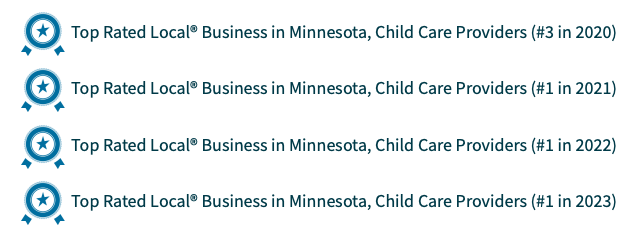|
Discover practical tips for transitioning from home-based to center-based child care after a move. Support your child with expert guidance. Transitioning from home-based to center-based child care after a move can be challenging for both parents and children. The new environment, routines, and social dynamics can feel overwhelming. However, you can help your child adjust smoothly with the right approach. This guide offers practical tips to make this transition easier. From preparing your child mentally to visiting the new center together, each step can significantly impact their comfort and happiness. Finding child care services that fit your family's needs is important, and understanding how to support your child during this change will set the foundation for a positive experience. Understanding the Differences Between Home-Based and Center-Based Care Understanding the differences between home-based and center-based child care helps you better prepare for the change. Home-based care usually offers a more intimate setting with fewer children, creating a family-like atmosphere. Children in home-based care often follow a flexible routine, which can be more relaxed. On the other hand, center-based care provides a structured environment with a set schedule. This type of care offers more socialization opportunities as children interact with a larger group of peers. In addition, center-based care typically has a wider range of activities and learning programs. Knowing these differences helps you anticipate changes and effectively guide your child through this new experience. Preparing Your Child for the Transition Preparing your child to transition from home-based to center-based care after a move is important for their comfort and confidence. Start by talking to your child about the new child care center and what they can expect. Explain the new routines and the fun activities they will experience. Engage in role-playing activities where you mimic the new environment to make it more familiar. Reading books about starting child care can also help. Allow your child to express their feelings and concerns, and address them with reassurance. Familiarizing them with the new setting can ease their worries and make the transition smoother. Involving Your Child in the MoveInvolving your child in the move can help them feel more in control and comfortable with the changes. Let them participate in packing their belongings, especially their favorite toys and clothes. This activity can make the process feel less daunting. Encourage them to label their boxes and explain how their items will be safe during the move. You can also make the move an adventure by discussing the exciting aspects of your new home and neighborhood. At the same time, hiring professional movers, such as promoversmiami.com, can alleviate some of the stress of moving, especially if you are moving to Minnesota from as far as Miami. They offer reliable moving services, including packing, transporting, and unpacking, which allows you to focus more on your child and less on the logistics. Involving your child and using professional help can create a positive moving experience for the whole family. Transitioning from Home-Based to Center-Based Child Care: Visiting the Center Together Visiting the child care center together before your child starts can greatly ease their transition. It allows you to familiarize yourself with the new environment and meet the caregivers. During the visit, observe how the center operates and how children interact with each other and staff. Encourage your child to explore the play areas and ask questions about daily activities. This hands-on experience helps build comfort and reduces anxiety about the upcoming change. If you are moving to Minnesota, Compass Child Care offers personalized tours and orientations to help families feel welcome and informed about their programs and facilities. This proactive approach ensures that you and your child feel confident about starting at the new center. Gradual Transition Strategies Gradually transitioning your child to center-based child care after a move can help them adjust smoothly to their new routine. Start by introducing short visits to the center, allowing your child to become familiar with the environment and caregivers. Begin with a few hours and gradually increase the duration over several days or weeks. This gradual approach helps your child feel more comfortable and confident in the new setting. Stay responsive to your child's emotions and readiness, adjusting the transition pace as needed. Maintaining consistency between home and child care routines also supports their adjustment. Communicating with Care Providers Effective communication with your child's new care providers ensures a smooth transition to center-based child care after a move. Start by sharing relevant information about your child's routines, preferences, and any specific needs they may have. Establishing an open dialogue allows caregivers to understand better and support their child's individuality. Encourage regular check-ins with the caregivers to discuss your child's progress and any adjustments that may be needed. This ongoing communication fosters a collaborative approach to your child's care and helps build a trusting relationship between you, the caregivers, and your child. Be proactive in addressing any concerns or questions, ensuring everyone is on the same page regarding your child's well-being and development in their new environment. Creating a Familiar Routine Creating a familiar routine for your child transitioning from home-based to center-based child care is important for their comfort and stability. Start by incorporating their previous home-based routine elements, such as meal and nap schedules, into their new daily schedule. Consistency helps them feel secure and grounded amidst the changes. At the same time, introduce new traditions or activities they can look forward to, such as a special goodbye ritual or reading a favorite book before naptime. These routines and rituals provide a sense of predictability and reassurance, making the transition smoother for your child. They will feel more confident and settled in their new child care environment as they become more familiar with the new routine. Supporting Your Child Emotionally Your child's well-being needs to support them emotionally during the transition to center-based child care after a move. Listen attentively to their feelings and validate them, acknowledging any worries or anxieties they may have about the new environment. Also, offer reassurance by emphasizing the positive aspects of their new child care setting, such as making new friends and trying exciting activities. Be patient and understanding as they adapt to the changes, providing comfort and encouragement. Encourage them to express themselves through art, play, or discussing their day. Your support is important in helping them feel safe and secure in their new child care environment. Monitoring and Adjusting After a move, monitoring and adjusting to your child's experience in center-based child care involves staying attuned to their emotions and reactions. Regularly check in with them about their day and how they feel about their new routine. Observe any changes in their behavior or mood that may indicate they need additional support or adjustment. In addition, stay in communication with the caregivers to gather insights into your child's interactions and activities at the center. Based on these observations, be flexible in adjusting their schedule or routines as needed to accommodate their comfort and well-being better. This approach fosters a positive transition and sets the stage for their continued growth and happiness in their new setting. Supporting Your Child's Transition
Helping your child adjust from home-based to center-based child care after a move is a gradual process that requires patience and understanding. By involving them in the transition, maintaining a familiar routine, and communicating openly with caregivers, you can make this change smoother and less stressful for your child. Also, monitor their progress closely and make any necessary adjustments along the way. With your support and reassurance, they will soon feel at ease in their new child care environment, ready to explore, learn, and grow confidently.
Discovering the Wonders of Turtles, Frogs, and Creepy Crawlers this week at Compass Child Care7/18/2023
 This week we are learning about the United States of America! We have been busy learning about the history of the United States. Through making American flags, firecracker art, tye-dyed shirts, music, and a myriad of learning activities we’re discovering the country we love and live in. United States of America Learning Objectives: X Expressing through art, song, and music. X Using symbols to understand the USA. X Learn how the past relates to the present. X Build phonemic awareness. X Show confidence & positive self-image. X Use fine motor skills with increasing complexity (cutting strips of paper to create our flag, for example). We hope everyone has a safe and happy Fourth of July. We will be closed, so see you on Wednesday the 5th! Top Rated Local® Names Compass Child Care as #1 Highest Rated Company in the State for the Third Year in a Row  All of our wonderful kiddos and their families are to thank, as we have been ranked at the top of the list of highest rated companies in Minnesota by Top Rated Local®, a 5 pillar experience based rating system that analyzes ratings and reviews from hundreds of verified review sites online and then ranks businesses based on their overall Rating Score™. For the third year in a row, Compass Child Care is listed #1 in Child Care Providers on the Top Rated Local site!
Attending preschool can provide your child with a strong foundation for reading readiness. Here are a few ways that preschool can help prepare your child to read:
|
AuthorWrite something about yourself. No need to be fancy, just an overview. Archives
June 2024
Categories
All
|
